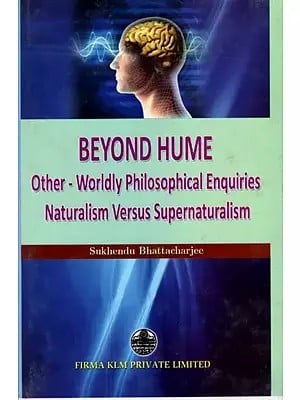Beyond Hume: Other Worldly Philosophical Enquiries Naturalism Versus Supernaturalism By Sukhendu Bhattacharjee
Beyond Hume: Other Worldly Philosophical Enquiries Naturalism Versus Supernaturalism By Sukhendu Bhattacharjee
Hardcover
Couldn't load pickup availability
Book Description
"Philosophical Perspectives on the Afterlife" explores the concept of an imagined afterlife through a philosophical lens rather than a theological one. The book begins with a critical inquiry into whether a living self can truly comprehend post-mortal existence. It proposes that while we cannot know with certainty what happens after death, our consciousness—defined as the awareness of values—suggests that it cannot simply vanish upon the end of physical life.
Through an analysis invoking ideas from notable philosophers like Descartes and Kant, the text examines how divine intervention might play a role in reconciling the natural and the supernatural. It argues that those with heightened moral and cultural consciousness may be considered eligible for an afterlife, where they could continue to develop in moral objectivity and personal immortality. Ultimately, the book posits that the philosophical exploration of the afterlife can reveal deeper insights into the nature of consciousness and existence.
Preface
In the preface, the author reflects on the limitations of Naturalism as defined by David Hume and emphasizes the need to cautiously extend beyond these boundaries to seek understanding of divine involvement in human existence. The text discusses the challenges posed by the concept of 'oddness' in our experience of nature and knowledge, drawing on the works of philosophers like Descartes, Kant, Spinoza, Leibniz, Locke, and Berkeley.
It highlights how Descartes’ acknowledgment of inherent uncertainty in knowledge necessitates the invocation of divine assistance to reassure seekers of truth. The preface argues that faith in a perfect and truthful God serves as a safeguard against potential deception, providing a foundation for credibility in the pursuit of truth within the sciences. Ultimately, it positions the exploration of supernatural intervention as essential for redeeming the human condition from its inherent oddness.
Share


